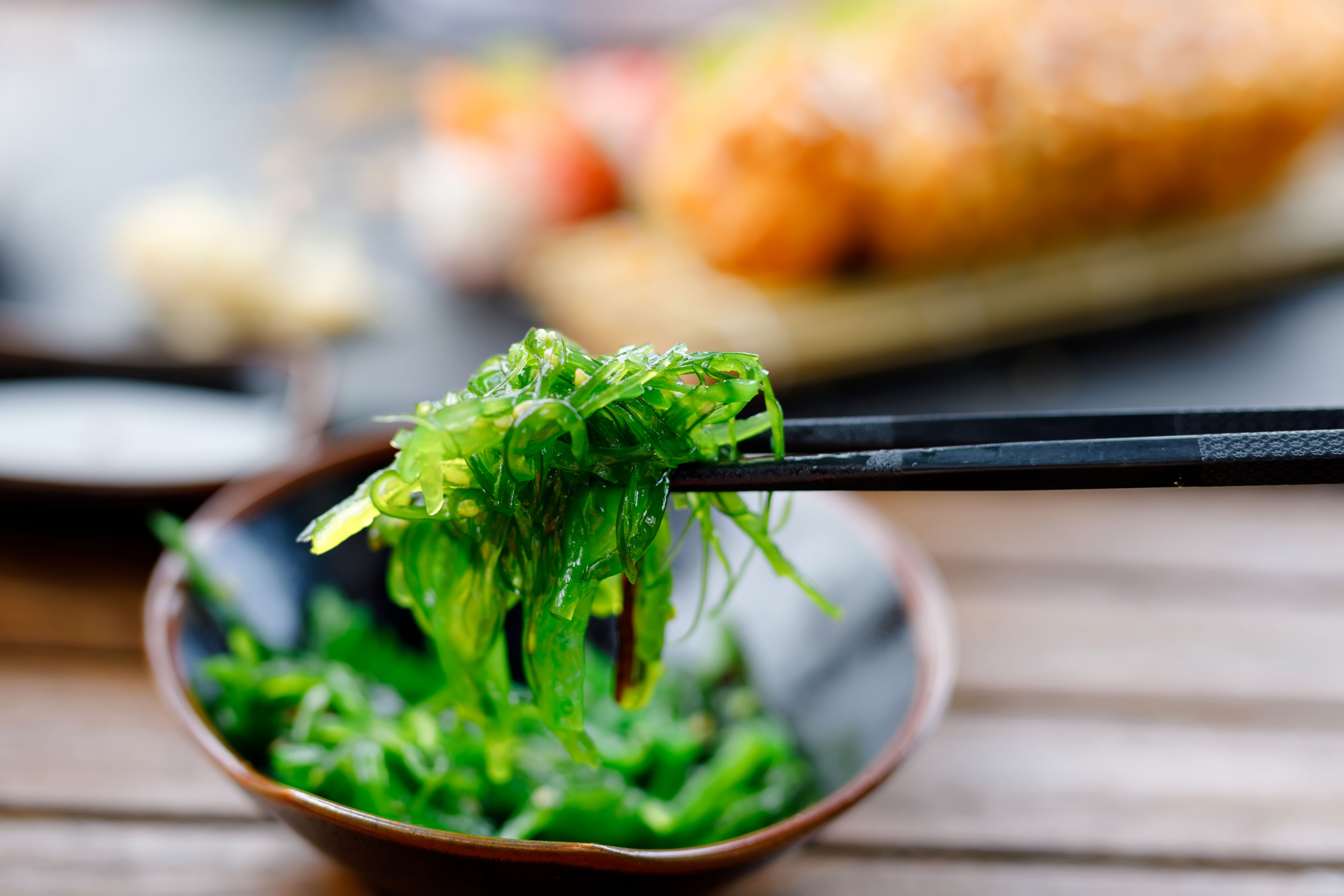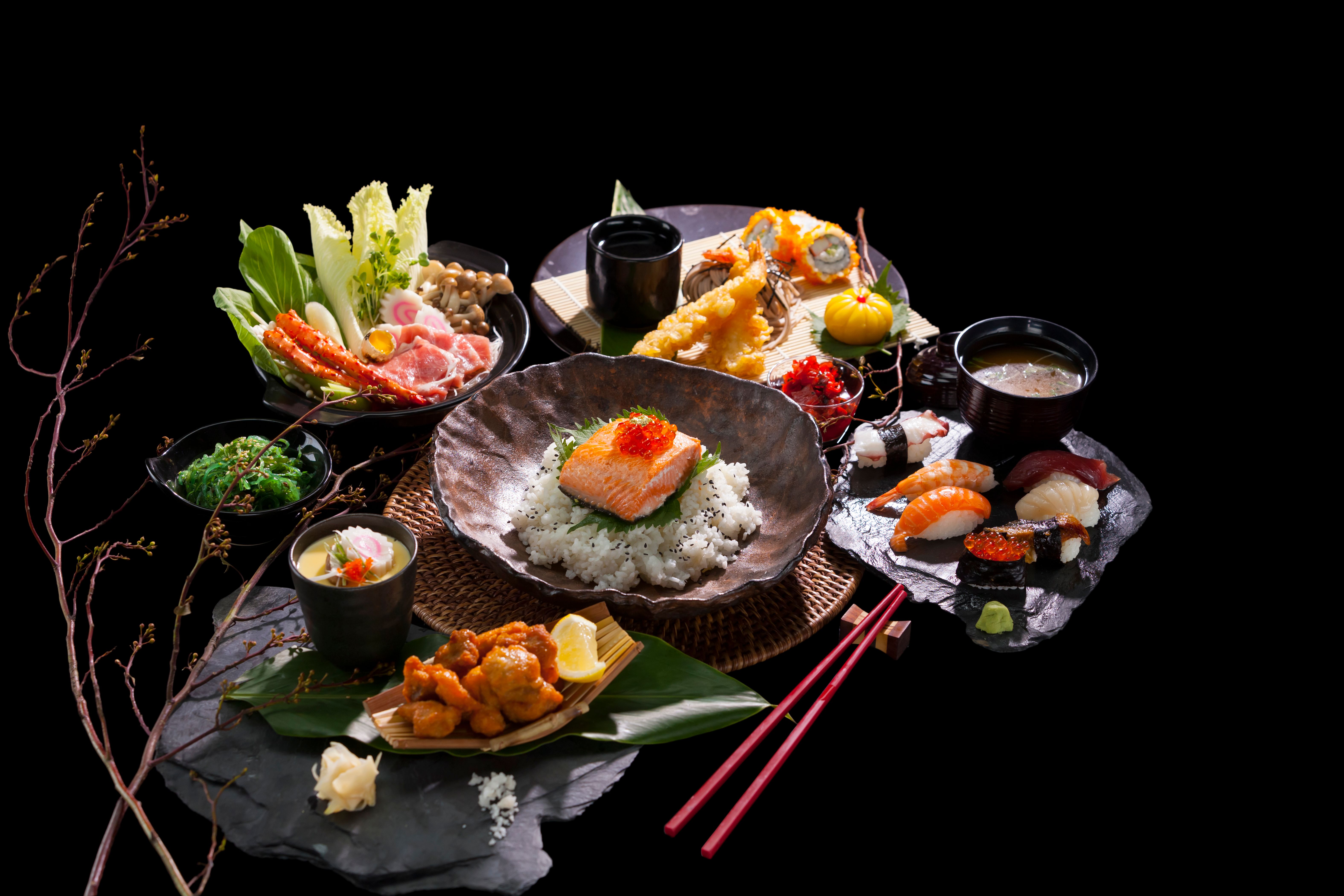Exploring the Culinary Delights of Nori: The Umami-Rich Seaweed
Understanding Nori: More Than Just a Sushi Wrapper
Nori, the paper-thin sheets of seaweed, are most commonly associated with sushi rolls. However, this umami-rich ingredient has a long history in Asian cuisine and offers a multitude of culinary possibilities beyond sushi. With its unique flavor profile and versatility, nori can transform a variety of dishes, adding depth and interest to both traditional and modern recipes.
Not only is nori a delicious addition to your culinary repertoire, but it's also packed with nutrients. This seaweed is rich in vitamins A, B1, B2, C, and E, as well as essential minerals such as iodine and iron. Incorporating nori into your diet can provide significant health benefits while delighting your taste buds.

Health Benefits of Nori
One of the standout features of nori is its impressive nutrient profile. It is low in calories yet high in protein, making it an excellent choice for those looking to maintain or lose weight without sacrificing nutrition. Additionally, nori contains omega-3 fatty acids, which are crucial for heart health and brain function.
Another benefit of nori is its high iodine content. Iodine is an essential mineral that supports healthy thyroid function, which is vital for maintaining metabolic balance in the body. Furthermore, nori is a good source of antioxidants that help combat oxidative stress and promote overall wellness.
Culinary Uses of Nori
Nori's versatility in the kitchen makes it an exciting ingredient to experiment with. While it is most famous for wrapping sushi, its uses extend far beyond that. Here are some creative ways to incorporate nori into your meals:
- Nori Chips: Crispy and savory, nori chips are a healthy snack alternative. Simply brush nori sheets with sesame oil, sprinkle with salt or other seasonings, and bake until crispy.
- Seasoning: Crumble dried nori over salads, rice bowls, or popcorn for an extra burst of umami flavor.
- Soups and Broths: Add strips of nori to soups or broths for a rich, oceanic flavor that enhances the dish's depth.

Pairing Nori with Other Ingredients
Nori pairs exceptionally well with a variety of ingredients. Its umami-rich profile complements foods like mushrooms, soy sauce, and miso. It also balances the richness of fatty fish such as salmon or tuna. For a refreshing combination, try pairing nori with fresh vegetables like cucumber or avocado.
To create a harmonious dish, consider the texture as well as the flavor. The crispiness of toasted nori can add a delightful contrast to creamy or soft ingredients. Experimenting with different combinations can lead to surprising and delicious results.
Nori in Global Cuisine
While nori is traditionally used in Japanese cuisine, its appeal has transcended borders. In Korean cuisine, it is used in dishes like gimbap and added to stews for extra flavor. In Western cuisine, chefs are increasingly utilizing nori to bring a touch of the sea to innovative dishes such as seafood pasta or even burgers.
The increasing popularity of fusion cuisine has also led to creative uses of nori in unexpected places. From nori-infused butter to seaweed-infused cocktails, the possibilities are endless for those willing to think outside the box.
Conclusion: Embracing Nori in Everyday Cooking
Nori is more than just an ingredient; it's an experience that brings a taste of the ocean to your table. Whether you're enjoying it in traditional dishes or using it as a creative twist in modern recipes, nori offers a unique flavor that elevates any meal. As you explore the culinary delights of this umami-rich seaweed, you'll discover new dimensions of taste and texture that enrich your cooking adventures.
